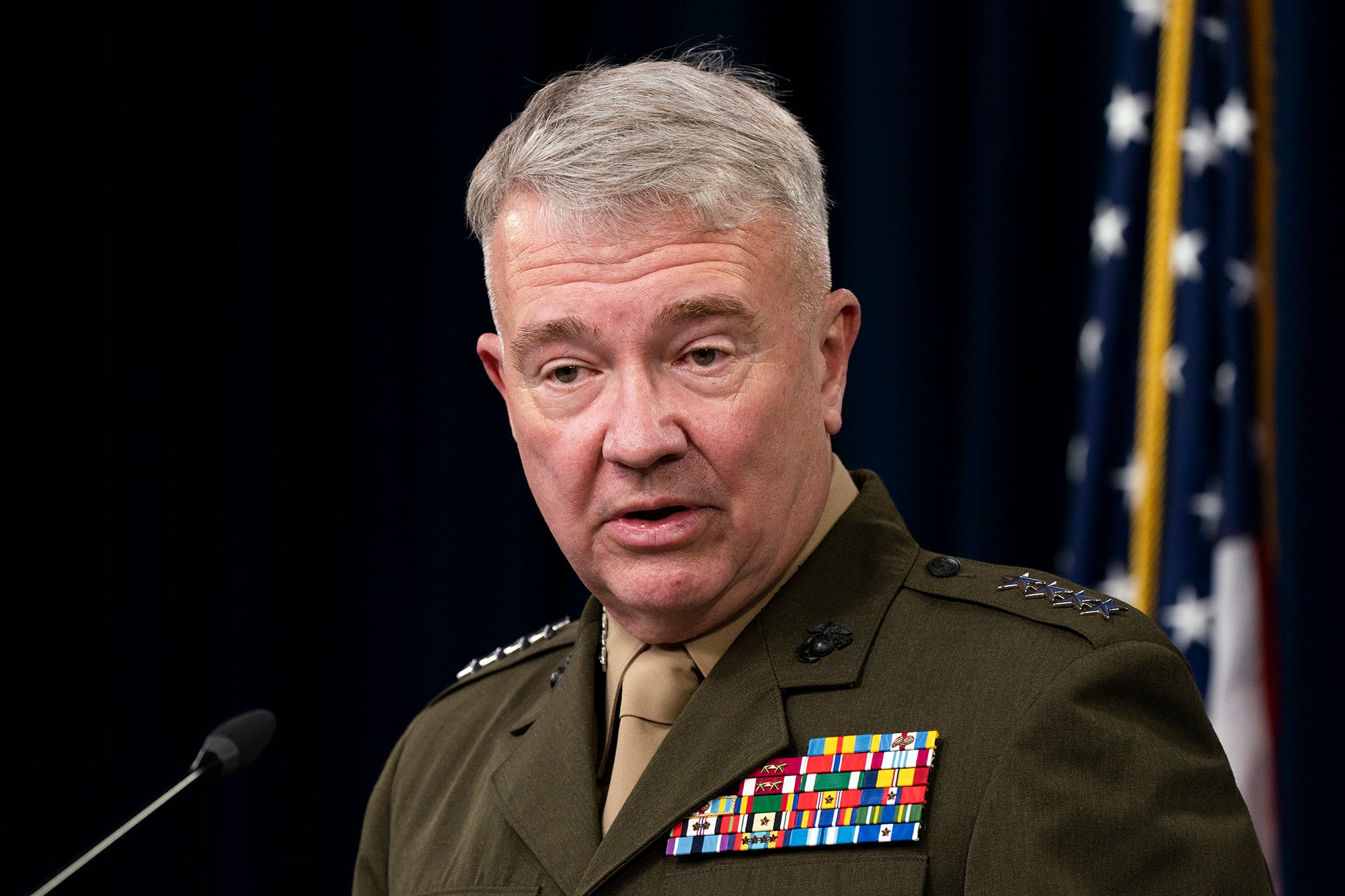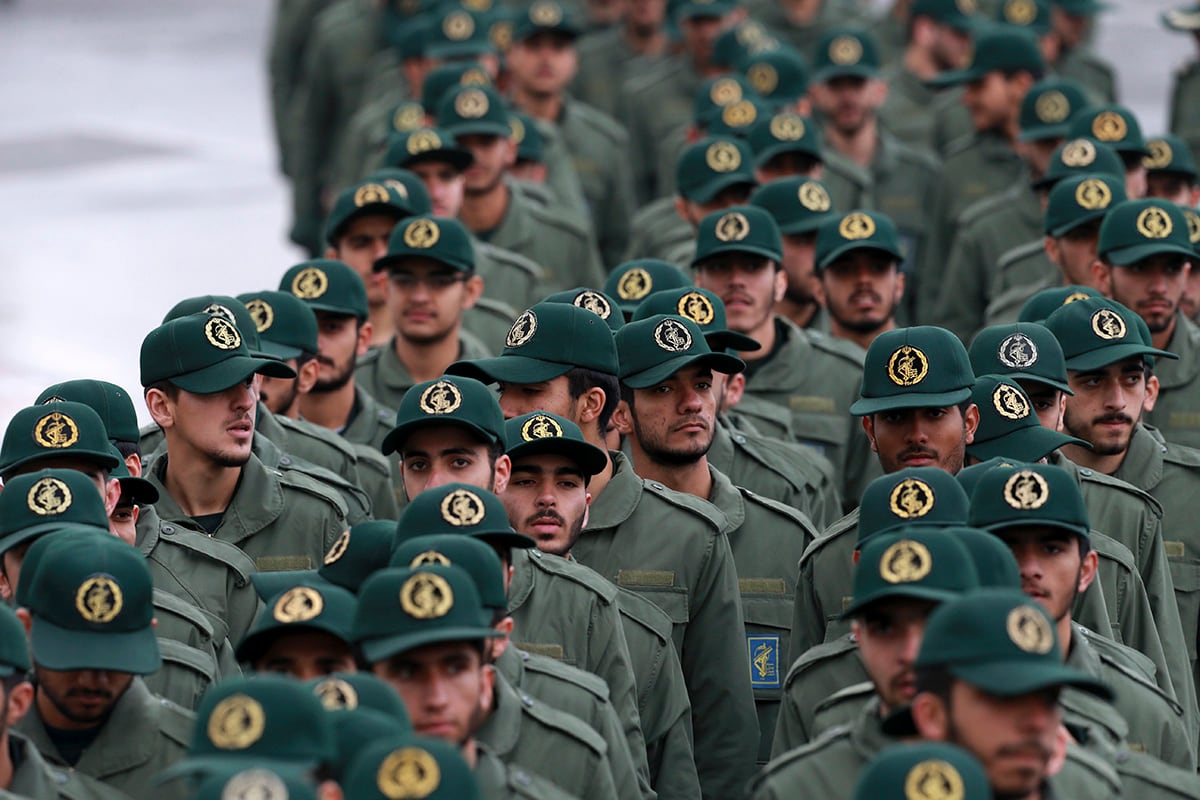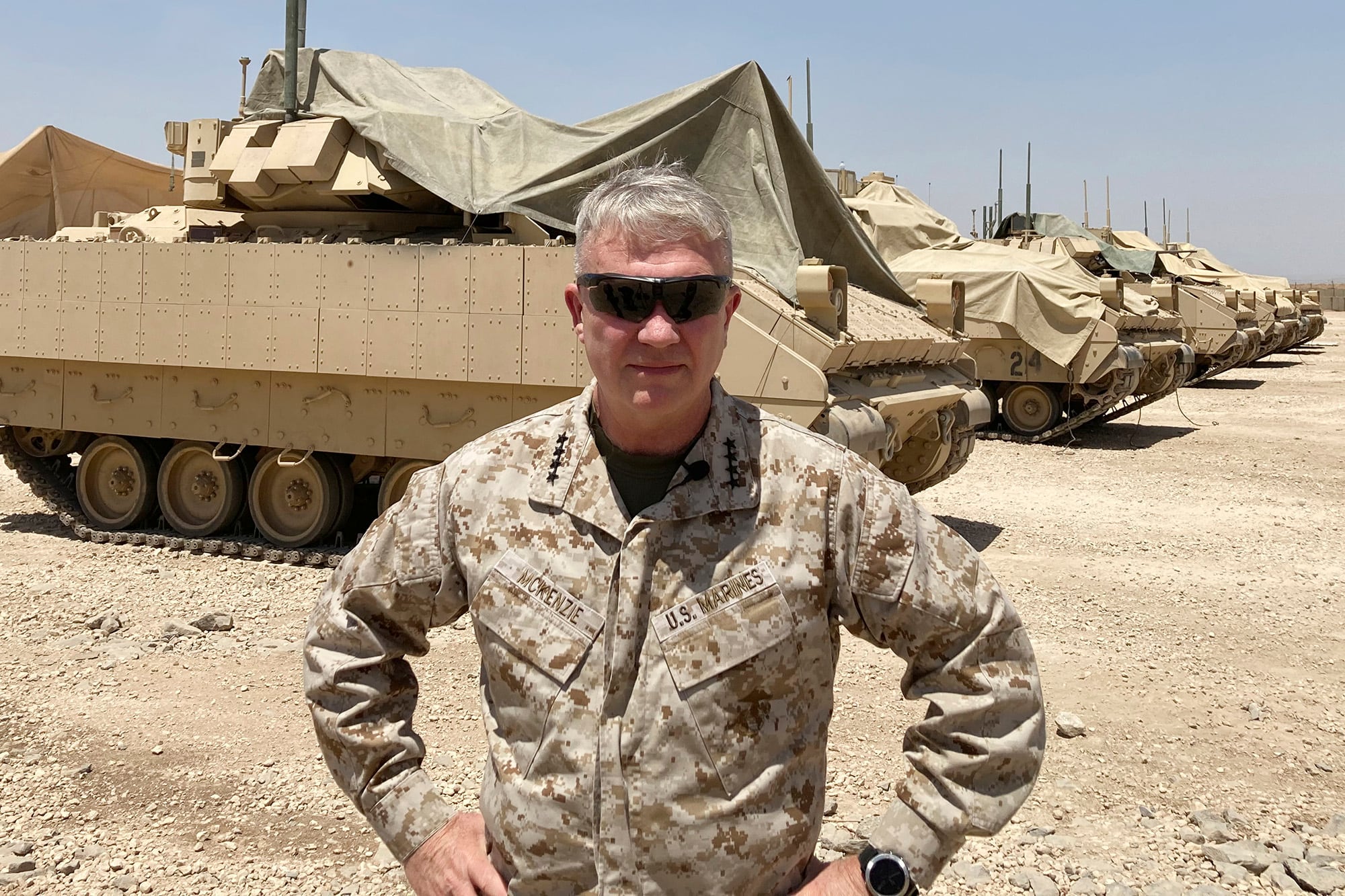For the past 20 years, U.S. Central Command has been the busiest of the U.S. military’s geographically arrayed headquarters. But even with the end of the American commitment of troops on the ground in Afghanistan, a reduced presence in Iraq and an overall U.S. shift to countering China and Russia, CENTCOM oversees a restive region that will continue to warrant attention. Military Times conducted an exclusive June 11 phone interview with Marine Gen. Kenneth F. McKenzie Jr., the CENTCOM commander, who talked about the withdrawal, the plight of interpreters, a drone attack in Iraq and the future of the region.
Some questions and answers have been edited for brevity and clarity.
MT: Have you provided options yet to Defense Secretary Lloyd Austin on securing the embassy in Afghanistan and providing counterterrorism support from outside the country once the withdrawal is complete? If so, can you share what some of those plans and troop levels might look like?
FM: So, I have been in consultation with the secretary, through [Army Gen. Mark Milley, chairman of the Joint Chiefs of Staff] on providing those plans, and the secretary is still chewing over it. We’re in a back-and-forth process, refining them, so unfortunately right now, because of that, there’s not much more I can share with you about the development of those plans.
MT: Do you foresee realistic threats to the homeland emanating from Afghanistan after withdrawal is completed and what worries you most about that?
FM: We know, with a high degree of certainty, that al-Qaida and ISIS, and the version of ISIS that’s in Afghanistan — ISIS Khorasan is what we call it — they both have aspirations to attack the United States. Long-standing, very public track record of wanting to attack our homeland, and the homelands of our partners as well in Europe and in other places. So, this is well established and well-documented from their own mouths. We believe that what has prevented these attacks from being developed, both from Afghanistan and from Syria as well over the last few years, is the pressure that’s been put on these groups. And so in Syria, for example, we and our SDF partners work very hard to keep that pressure on them so they don’t have — particularly ISIS — the ability to generate those attack plans because they’re busy scrambling around for their own survival. Sort of the same thing occurs in Afghanistan. So, what would concern me the most in the long term would be a future situation in Afghanistan where there wasn’t adequate pressure kept on these groups, because we know left unmolested that they are certainly going to rebuild, restrengthen themselves, and we have no reason to doubt they don’t mean what they say when they say, repeatedly and earnestly over the past few years, that they want to attack us in our homeland.
MT: A recent U.N. report warned that the Taliban appeared poised to take back control of Afghanistan for the first time since it was ousted from power by the United States. Do you believe that, why or why not?
FM: So, we’re leaving. That fact is evident to everyone and the only thing that is going to remain, If we can protect it, will be our embassy platform — our diplomats that will be there. And we still intend to support the Afghan military from just over the horizon. We’re still going to support them with funding. We’re going to try very hard to support the Afghan air force over the horizon; some things will come out of the country to be worked on. We will do some televised remote advising with them as we go forward. All those things, we will continue to do that. I don’t want to minimize this, because I think they’re going to be tested, but we will continue to support them, just not in the way we are supporting them now.

MT: The Taliban seems to be gaining momentum on the battlefield. Do you think that Afghan security forces can hold them off militarily and, if so, specifically what do you base that judgment on?
FM: The fighting is seesaw right now. You know we will do everything we can to help the Afghans going forward within the limits that we have, which is, of course, no boots on the ground. But it’s gonna be really on their shoulders now to stand or fall, and I think they have a fighting chance to do it. That’s what I’ve said before, and we’ll do everything we can to help them. One thing I probably need to emphasize is we will still do everything we can to keep pressure on ISIS and al-Qaida, from our over-the-horizon locations. That is a task I’ve been given. Those are plans I’m in discussion with now with the secretary of defense. How we will do that, I’ve said before, that will be a very difficult thing to do. But it is not an impossible thing to do, and we will work very hard to keep that pressure on.
MT: That leads me to my next question. Can the U.S. provide any combat support to Afghan forces if they are under siege from the Taliban, or if major cities such as Kabul are at risk of being overrun or if they’re under siege from ISIS-K? And if so, what kind of combat support? Or would you rule that out because it doesn’t fall within the parameters set by President Biden?
FM: Those are actually, as you will appreciate, policy decisions, not military decisions. I will tell you this. Right now what we’re planning to do after we withdraw is keep pressure on al-Qaida and ISIS, and that would be what we’d be doing, going back into Afghanistan. When those entities presented actionable threats against the United States, we’d be prepared to go in there and take action if our Afghan partners are unable to do that, and that will be the limit of our kinetic actions in Afghanistan.
MT: So, you’re not ruling out that there still could be kinetic actions taken by the U.S. under certain circumstances?
FM: I am completely silent on that. I would tell you that the only thing we’re planning for right now — the only thing we’re planning for right now — is the ability to continue operations against al-Qaida and ISIS.
MT: Would you rule that out?
FM: I’m probably not the right guy to ask.
MT: Are you considering training Afghan troops in any locale in the region, say Jordan or someplace?
FM: Those are options that are all under consideration right now as we go forward and that’s probably all I can say about it.
MT: Given that the U.S military went to a virtual advising position in Afghanistan in early 2020 due to COVID, are you looking at the possibility of a dedicated, remote advising cell for Afghan security forces?
FM: Our organization that provides advice to the Afghans will continue to do so, at a higher level. And we’ve been at a pretty high level here for a while anyway. For the last year or so, and even before coronavirus, our numbers were down in Afghanistan significantly from what they’ve been in the past. So, the Afghans are actually doing the vast majority of the fighting themselves without us being there with them, so not much is going to change in that regard. But without any people on the ground at all, any advising that would do at the very high level would have to be done remotely from outside of the country. That’s correct.
MT: Can you give me more detail about how the U.S. could support Afghan aviation? Because that’s the one major advantage they have.
FM: Sure it is. And I can tell you this: It will be done remotely; it will not be done in Afghanistan; and it will be a combination of remote advising — and you know that’s used sometimes in airlines now in the United States, where you provide advice from one work center to another work center. We will strive to do that in remote locations. We may examine the possibility of bringing aircraft out to work on — fly them out of the country to work on in a different location. That, too, is a possibility. So, there are a broad number of things we are going to do. Because I do believe, Howard, you captured an important point. One of the great advantages for the Afghans is their air force. The Afghan air force, which is doing a lot of good work for them over the past few months.
MT: Do you have any more information about the suspected drone attack on the Baghdad Diplomatic Support Center? And if you confirm that it was a drone, how concerning is that? The place was damaged and some people had smoke inhalation, but it could have been worse.
FM: It could be a lot worse. And the one thing I will point out is that the actual people who are responsible for defending us there is the government of Iraq. They do a pretty good job of trying to minimize these attacks, and they were not successful in this case. And, of course, we’ve always retained the ability to defend ourselves wherever we are under whatever circumstances we are. These attacks are troubling, going forward, and what they represent is — for well over the last year, year and a half — Iran has sought to force us to leave Iraq, And they sought to do that through political means. And so now that they recognize they’re not going to get there, politically, they’re shifting to a military approach, and that’s just where we are right now. And this UAV attack — and I can tell you it was a UAV attack, but I’m really not in a position today to give you much more information on it right now — is representative of that.
RELATED

MT: Do you anticipate the potential of kinetic action with Iran — in Iraq or elsewhere — as they ramp these attacks up?
FM: So, that is a better question probably not for me. That’s really a high-level decision for the United States that would be well made well above the level of U.S. Central Command.
MT: I imagine you have contingencies in case such a situation would arise.
FM: Howard, we have contingencies for everything.
MT: Have you presented plans to SECDEF for evacuating interpreters from Afghanistan if so tasked? Can you share those plans, and what is your message for those folks who are waiting?
FM: So, we have workable plans to evacuate any scale of people that we would be directed to do. That’s one of the things that we have done. I’ve talked to the secretary about it. You know, the actual decision about who’s going to come out, whether they would come out and how that would work, is not the Department of Defense’s decision, that’s a Department of State decision and ultimately a level above the Department of State. I can tell you this. The Department of Defense is prepared to undertake any tasks that we would be required to do in coordination with a presidential decision.
MT: What’s your message to those who worked with the U.S. and risked their lives and are now waiting?
FM: I certainly value those Afghans I’ve worked with, and over the years I’ve had an opportunity to work with a lot of them. I would say this: Now is a time when it is incumbent upon Afghans to defend their country. And this is going to be a stern test for them. I think they’re going to enter a period of great risk now, but I think they can defend their country. It’s not going to be easy, but they can certainly do that.
MT: Shifting a little bit to great power competition, with China and Russia stepping up efforts in Afghanistan, what level of concern do you have about Chinese and Russian efforts there and what, if anything, can be done?
FM: So, the Chinese, I think they would like to get in for the mass mineral deposits that exist on the ground in Afghanistan and in other places, and that’s their interest. I think the Russians have concerns about the spread of terror north through the Stans into Russia. I think both are interested in it. None of them have been particularly supportive of us while we’ve been there, and if we leave, I think they will try to move in to fill what they perceive to be a vacuum. They may find that to be harder than they think, though, to actually accomplish.
MT: Do you anticipate any situation where the U.S. could find itself having to go back to Afghanistan?
FM: The simple answer is no, I don’t.
Howard Altman is an award-winning editor and reporter who was previously the military reporter for the Tampa Bay Times and before that the Tampa Tribune, where he covered USCENTCOM, USSOCOM and SOF writ large among many other topics.





